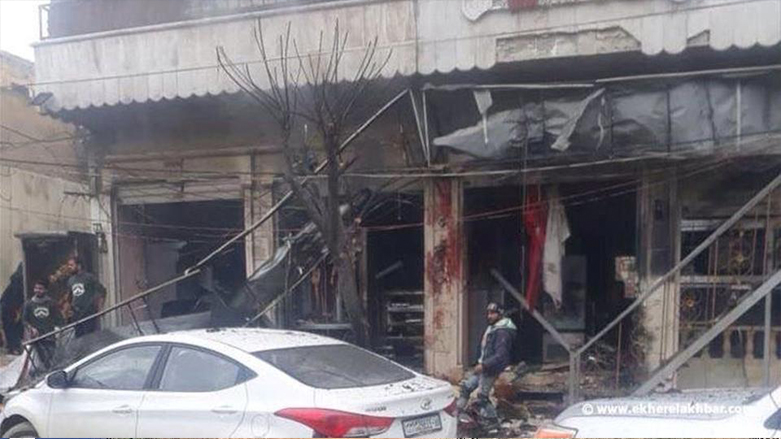'I forgive you:' Ghadir’s mother to Donald Trump
A memorial service for Ghadir Taher, the 27 year-old translator, killed recently by a suicide bomber in Manbij, Syria, along with three other Americans, was held Saturday...

WASHINGTON DC (Kurdistan 24) – A memorial service for Ghadir Taher, the 27-year-old translator killed recently by a suicide bomber in Manbij, Syria, along with three other Americans, was held Saturday in Atlanta, Georgia.
Ghadir’s father, Kawa Taher Talabany, is Kurdish, from Kirkuk, and her mother, Amina Shaheen, is Syrian, from Damascus.
Ghadir was a warm, caring, and much-beloved young woman, as Kurdistan 24 witnessed at the memorial service, seeing the many people, including US officials, who attended the event to honor her, her sacrifice, and her memory.

Her mother, Amina, spoke movingly to Kurdistan 24 as she describes the events surrounding Ghadir’s death; the daughter she had raised and loved; and the pride and purpose that Amina saw in Ghadir’s all-too-short life.

When Ghadir’s body was returned to the US, along with those of the three other Americans, President Donald Trump, Secretary of State Mike Pompeo, and Acting Secretary of Defense Patrick Shanahan were present at Dover Air Force Base to witness the “dignified transfer,” as the solemn and formal ceremony is known.
“I spoke to Trump. He came and shook our hands, and I talked to him,” Amina told Kurdistan 24. “He shook my hand, and he gave us a hug, so I told him, “I forgive you.”
“Because of Ghadir,” she continued, and “the decision he made.”
Amina smiled when she recalled her daughter’s warmth and vivacity, but this was the most difficult part of our conversation—to recollect the circumstances of her daughter’s death and the factors behind it.
Asked if the US decision to withdraw from Syria might have been one of the causes of the bombing, she responded, “I think so.”
That is easy to understand. In the three years that US forces have been in eastern Syria, they have suffered very few casualties. The January 16 suicide bombing at a popular Manbij restaurant was the most lethal. Nineteen people, including the four Americans, were killed in that assault.
Five days later, another bomb targeted a joint convoy of the US-led Coalition and Kurdish-led Syrian Democratic Forces in Hasakah province. The Islamic State, quite arguably, was emboldened by the decision to withdraw US troops.
Amina recalled how, many years ago, she had met her husband in Damascus. He had fled to Syria, escaping Saddam Hussein’s regime. She was at a friend’s house, and he came over to her and said, “I want to marry someone like you.”
She laughed, but they started dating, and they did get married. In the late 1990s, they emigrated to America, and their children, including Ghadir, followed them a few years later.
Ghadir “loved to serve the army,” her mother told Kurdistan 24. “She was very, very proud of her job,” and “she did what she dreamed about.”
Amina described her daughter as an extremely friendly and caring person, as did others, including her younger brother, Ali, who called Ghadir “my best friend.”
“She died doing what she believed in, helping people,” he explained, including those Syrians “struggling to put their lives back together” after the Islamic State.
Ghadir saw her work as a chance to “give back” to America, what it had given her, Ali said. She and the service members with whom she worked “were a family.”
Others spoke similarly. Cindy Straud was a friend of Ghadir’s from high school, where the Syrian immigrant graduated second in her class. Cindy recalls Ghadir as “always nice, loving caring, willing to help everybody.”
The early loss of the young, vivacious woman, clearly, is extremely difficult for her family and friends. But Ghadir’s mother seemed to find some consolation in knowing that her daughter died doing a job that was important and that she loved.
“I want to send a message,” Amina said, to those “who do Ghadir’s work,” as she urged them to continue.
“Don’t stop, please, because people need you—and families, and kids, and countries” need you.
Asked if the US withdrawal from Syria was the right decision, she responded, ever so sadly and softly, “It’s not. It’s not. It’s not.”
Editing by Nadia Riva
